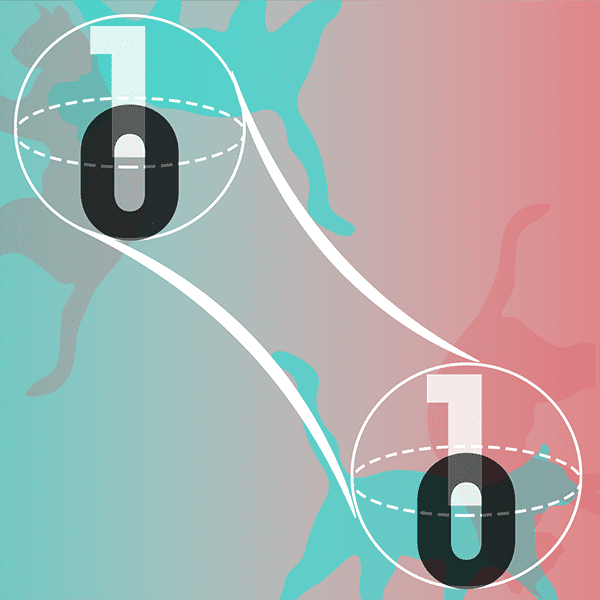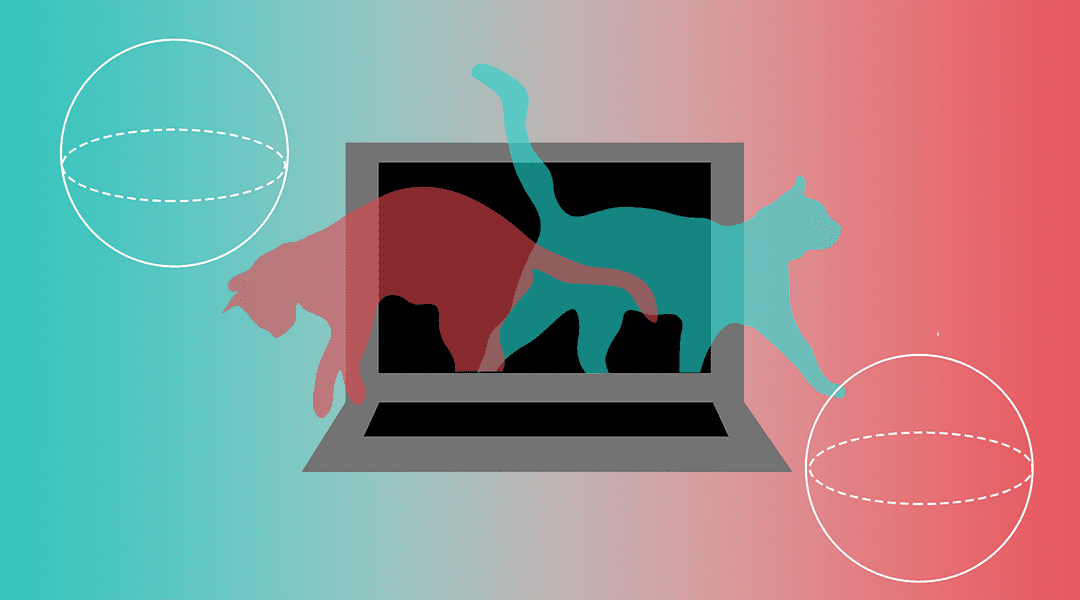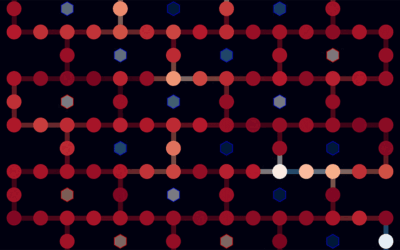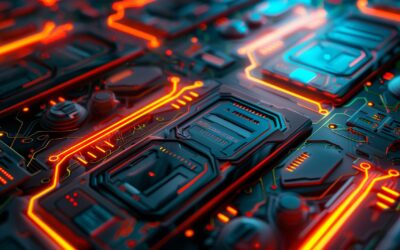Quantum computers, as their name implies, operate on the bizarre principles of quantum mechanics to manipulate information and are poised to revolutionize our computing capabilities. With companies like IBM and Google already building the first prototypes, they are expected to propel technology forward with greater speed, accuracy, and security by completing tasks that would be otherwise impossible for ordinary computers to handle.
This all sounds very impressive, but how do they work?
The quantum bit and principle of superposition
Quantum computers rely on qubits as their basic unit of information. As opposed to conventional binary computers, which operate in units of information represented by 1s or 0s, qubits can exist as a “1” and “0” simultaneously. This is made possible by what physicists call the principle of superposition, which states that a quantum system can exist in several separate quantum states at the same time.

Remember Schrödinger’s cat?
This thought experiment describes a scenario in which a cat is placed inside a box with a vial of poison and a radioactive atom. When the atom decays, it will break the vial and kill the cat, but without opening the box there is no way of knowing whether the cat is alive or dead.
In essence, until the box is opened and the cat’s state is “measured”, it can be considered as having both states simultaneously, i.e., the cat exists in a superposition of being both alive and dead.
This is an over-simplified and less than perfect means of relating quantum mechanics to something tangible.
Nevertheless, like Schrödinger’s cat, the quantum computer’s final calculation emerges only once the qubits are measured and “collapse” their quantum state to either a 1 or 0. This attribute allows a quantum computer with several superimposed qubits to store enormous amounts of data and quickly reason through complex problems, situations, or computing tasks by simultaneously exploring multiple pathways and choosing the most efficient one.
How do qubits make a quantum computer?
The idea of a qubit sounds rather simplistic, but actually poses a bit of an engineering problem because they are extremely sensitive to outside interference and need very specific pressure, temperature, and insulation to operate correctly.
Qubits are subatomic particles, like electrons, trapped ions, or photons, which have been isolated in a controlled quantum state. This is done physically through manipulation of the particle’s excited states using laser pulses, as one example, to put them into a state of superposition.
The slightest change in the particle’s environment — such as outside electric or magnetic fields from nearby devices, or even radiation from outer space — could deliver the energy needed to cause them to fall out of superposition, which is why they are sealed in super-cooled vacuum chambers to prevent any interference.
What is quantum entanglement and how does it make quantum computers more powerful?
Individual qubits can be linked together through a phenomenon called quantum entanglement.

On a basic level, when two quantum particles become entangled, they exist in identical quantum states. Changing anything about the quantum state of one particle (i.e., by measuring it) instantaneously changes the state of the other, even when separated by vast distances — in fact, recent experiments have demonstrated entanglement between two photons separated by a distance of 1203 kilometers, where one was located on Earth and the other in an orbiting satellite. Einstein called this apparent connection “spooky action at a distance”.
In addition to enabling the instantaneous and secure transfer of information, superimposed qubits can be entangled in a chain-like fashion to exponentially enhance a quantum computer’s power. For example, a binary computer with eight bits can represent any number between 0 and 225; a quantum computer with eight qubits can represent every number between 0 and 255 at the same time. Now imagine the possibilities if these qubits were entangled with x partners in a whole network of entangled particles!
What will quantum computers be used for?
The intent is not to use them for everyday tasks like sending emails, making spreadsheets, or even gaming. Instead, quantum computers will be a problem-solving tool as their computing power would allow them to carry out complex calculations, predictions, simulations, and database searches.
For example, conventional computers have difficulty in modeling systems that are fundamentally based in quantum mechanics, such as understanding the behavior and properties of complex materials or accurately modeling a chemical reaction. The very nature of these systems limits a classical computer’s ability to resolve them.
Another hope is that quantum computers will be able to solve problems that require exploring thousands of possibilities and trial and error before arriving at the right or best answer.
Say, for example, you were given a list of a thousand islands connected by bridges and you wanted to create a tour that visits each island and only crosses each bridge only once. The complexity of the problem rises exponentially with the number of islands. There are still no classical algorithms that can do this better than actually going through all the possible options to determine the best one, which might take a classical computer many years to explore.
The hope is that because of the principles of quantum mechanics, a quantum computer will be able to efficiently solve these types of problems in a matter of seconds.
What is quantum supremacy?

Quantum supremacy refers to the moment when a quantum computer is able to outperform a conventional system or accomplish a task otherwise thought impossible even for a powerful supercomputer. The term itself is controversial, with some researchers proposing “quantum advantage” instead.
In 2019, Google, in partnership with NASA and Oak Ridge National Laboratory, reportedly achieved quantum supremacy when their quantum computer carried out in seconds a task that would take a supercomputer thousands of years to complete.
While there is buzz around this achievement, there appears to be mixed feeling among experts about whether this milestone has actually been achieved. Google’s quantum computer was able to carry out the calculations in just 200 seconds, but were its answers correct?
When will a universal quantum computer be made?
Keeping a qubit in a state of superposition is no easy feat and even the slightest change in environment can cause it to collapse before the calculation or task has finished. This phenomenon, known as quantum decoherence, is a significant problem because it allows mistakes to slip into calculations.
Algorithms have been developed to compensate for this problem and adding more qubits also helps. However, scientists have yet to create a quantum computer that is error-free and broadly useful.
There is still some controversy among experts about whether or not quantum computers will live up to their hype and computer scientists certainly have their work cut out for them. Companies such as Google and IBM are jostling to lead the field and predict the development of universal quantum computers within the next few years.
Even then, some experts believe that they might not be worth all this trouble as there are some functional and cost-associated roadblocks that cannot be overcome.
The field is still in its infancy but if successful, quantum computers could transform technology as we know it. Only time will tell!
Illustrations by Kieran O’Brien
We strive for accuracy and fairness. If you see something that doesn’t look right, contact us!

















